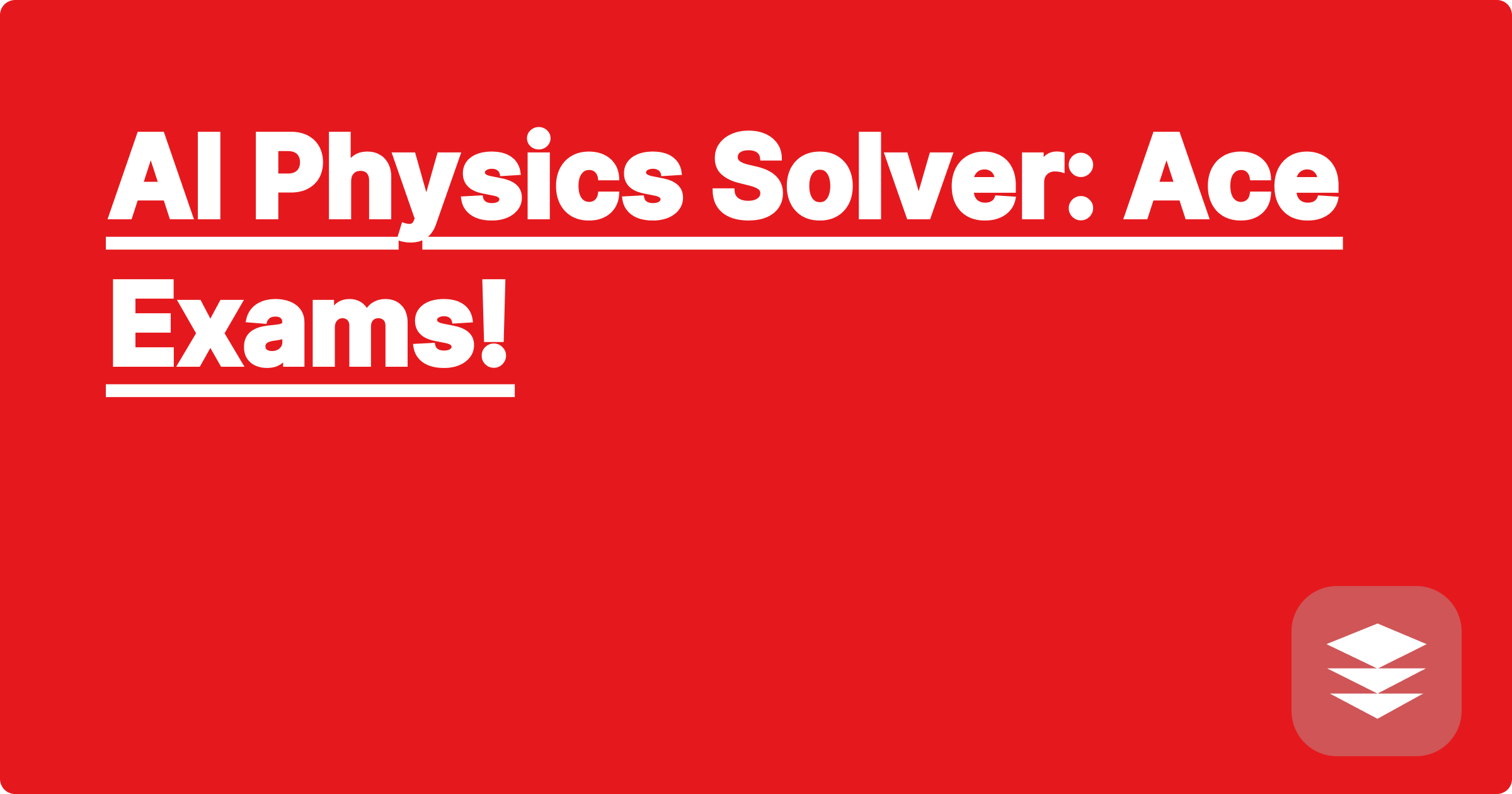
The world of STEM is a challenging yet rewarding one. It demands rigorous study, deep understanding of complex concepts, and the ability to apply those concepts to solve intricate problems. For many students and researchers, keeping up with the ever-increasing demands can feel overwhelming. Fortunately, the rise of artificial intelligence offers a powerful new set of tools that can significantly enhance learning, research, and problem-solving capabilities. This isn't about replacing hard work, but rather about working smarter, leveraging AI to achieve a "quantum leap" in your STEM journey. This post will explore how AI can become your secret weapon, specifically focusing on physics, to help you ace exams and accelerate your research.
Imagine having a personalized tutor available 24/7, capable of explaining complex concepts in simple terms, generating practice problems tailored to your weaknesses, and even providing step-by-step solutions. This is the potential of AI-powered learning in STEM. For high-achieving students (think 3.5 GPA and above) aiming to maximize their efficiency and push the boundaries of their understanding, AI offers an unprecedented opportunity to optimize their study habits and achieve even greater success. This isn't just about getting good grades; it's about developing a deeper understanding of the subject matter and preparing yourself for a future where AI proficiency will be a critical skill.
Physics, with its intricate equations and abstract concepts, can be particularly challenging. Traditional study methods often involve pouring over textbooks, attending lectures, and working through problem sets. While these methods are essential, they can be time-consuming and may not always address individual learning needs. Students often struggle with visualizing concepts, applying formulas to real-world scenarios, and efficiently managing their study time. Researchers, too, face challenges in sifting through vast amounts of data, identifying relevant research papers, and formulating new hypotheses.
Generative Pre-trained AI (GPAI) tools like ChatGPT and Wolfram Alpha offer a revolutionary approach to learning and research in physics. ChatGPT can be used to break down complex concepts into easily digestible explanations, generate practice questions, and even provide feedback on your solutions. Think of it as your personalized AI tutor, always available to answer your questions and guide you through challenging problems. Wolfram Alpha, on the other hand, excels at symbolic computation, allowing you to solve complex equations, visualize mathematical functions, and access a vast database of scientific knowledge. These tools complement each other, providing a comprehensive suite of resources to enhance your understanding and problem-solving skills.
Let's walk through a practical example of how to use these tools. Imagine you're struggling with understanding the concept of angular momentum. You can start by asking ChatGPT to explain angular momentum in simple terms, providing analogies or real-world examples. Once you grasp the basic concept, you can ask it to generate practice problems related to angular momentum. As you work through these problems, you can use Wolfram Alpha to verify your calculations and explore different scenarios by changing parameters in the equations. If you get stuck, you can return to ChatGPT for hints or step-by-step solutions. This iterative process allows you to actively engage with the material, identify your weaknesses, and reinforce your understanding.
Consider a student preparing for a physics exam on rotational motion. They could use ChatGPT to create a personalized "AI cheat sheet" summarizing key formulas and concepts. For example, they could ask ChatGPT to "summarize the key formulas for rotational kinematics and dynamics, including moment of inertia, torque, and angular momentum." They can then use this cheat sheet as a quick reference while solving practice problems generated by ChatGPT or found in their textbook. Wolfram Alpha can be used to visualize the motion of rotating objects, helping them develop a more intuitive understanding of the concepts. Another example is a researcher investigating the properties of a specific material. They could use Wolfram Alpha to access data on the material's physical properties and then use ChatGPT to brainstorm potential research questions or hypotheses based on this data.
To effectively leverage AI in your STEM studies and research, it's crucial to develop a strategic approach. First, clearly define your learning or research goals. Are you trying to master a specific concept, prepare for an exam, or explore a new research area? Once you have a clear goal in mind, identify the AI tools that best suit your needs. Experiment with different tools and find the ones that resonate with your learning style. Don't be afraid to ask specific and detailed questions to get the most out of these tools. For example, instead of simply asking for a definition, ask for an explanation with real-world examples or analogies. Finally, remember that AI is a tool to augment, not replace, your own efforts. Active learning and critical thinking remain essential for deep understanding and success in STEM.
For advanced users, exploring the advanced features of these tools can unlock even greater potential. For instance, learning how to adjust parameters in ChatGPT can allow you to fine-tune the output to better match your specific needs. Similarly, understanding how to use Wolfram Alpha's symbolic computation capabilities can empower you to solve complex equations and explore intricate mathematical relationships. Participating in online communities and forums dedicated to AI in STEM can provide valuable insights and connect you with other like-minded individuals.
The future of STEM is intertwined with the advancement of AI. By embracing these powerful tools and integrating them into your workflow, you can not only improve your academic performance but also gain a significant competitive edge in your future career. Start exploring these tools today and unlock your full potential in the exciting world of STEM. Don't just keep up with the curve – get ahead of it! This is your opportunity to leverage the power of AI and experience a true quantum leap in your STEM journey.
AI-Powered STEM Prep: Conquer Exams!
AI for STEM Homework: Solve Faster!
Boost Your GPA: AI Study Guide
AI Math Solver: Get Unstuck Now!
AI in Research: Paper Assistant